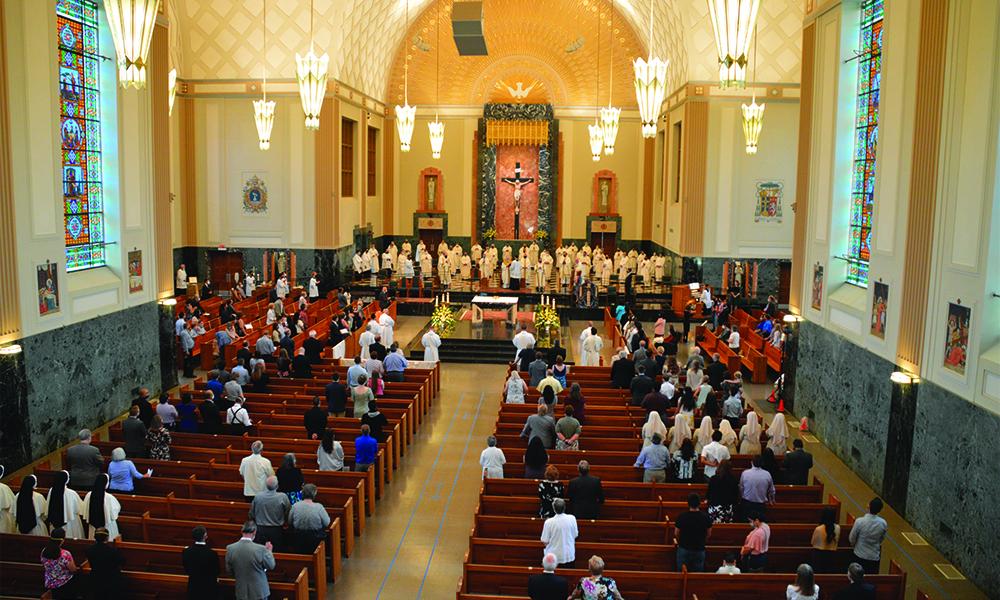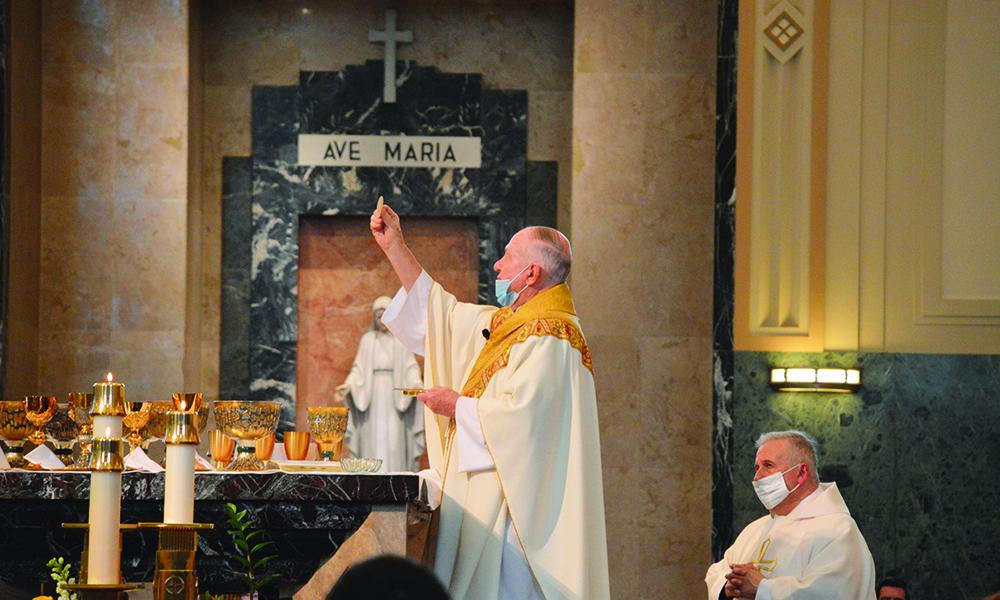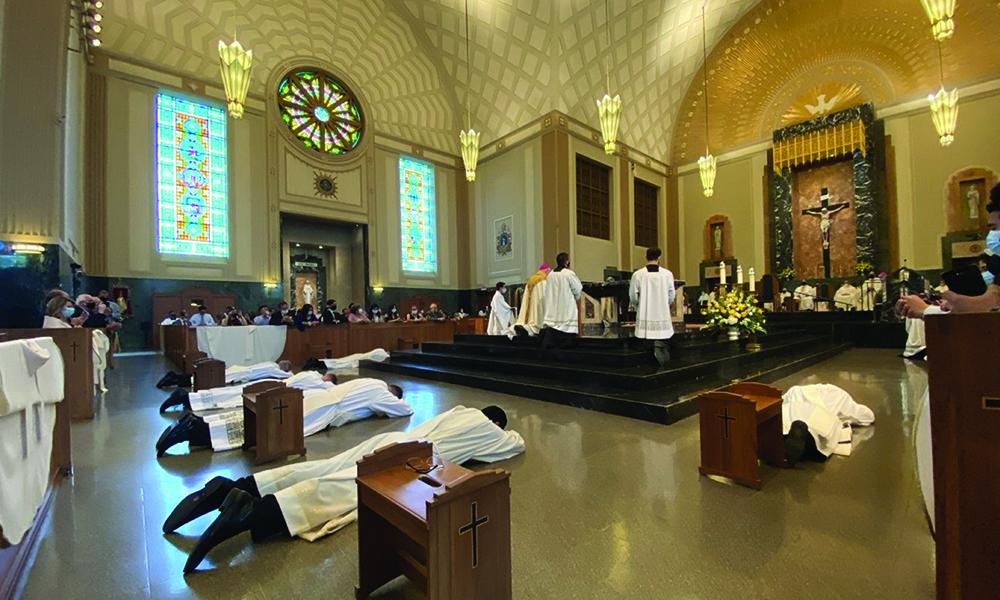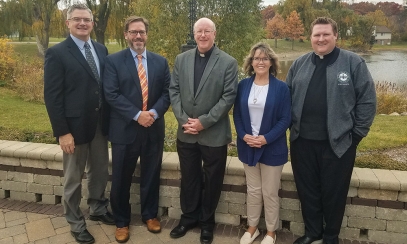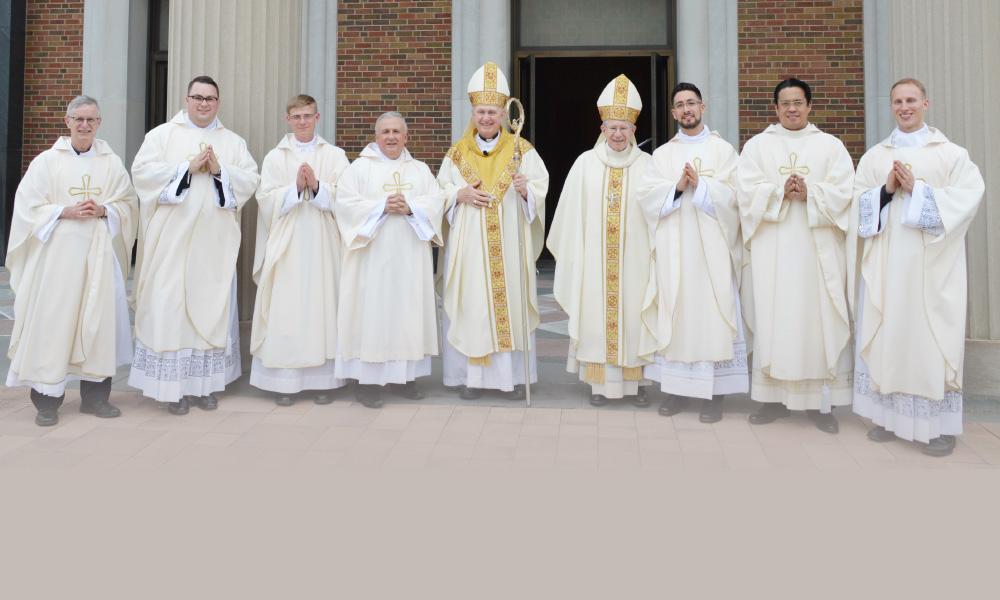
The Diocese of Joliet Ordains Six New Priests and a Transitional Deacon
Six men were ordained to the priesthood and one was ordained as a transitional deacon on the path to priesthood during a Mass at the Cathedral of St. Raymond Nonnantus in Joliet on June 20.
In keeping with the times, the number of people sitting in the pews was limited; masks were worn by all; social distancing was the norm; and the Mass was livestreamed.
The six new ordained priests were Father Andrew Buchanan, Father MM Cerna, Father Michael Groth, Father James Guarascio, Father Peter Infanger, and Father Ramon Sida III. The transitional deacon was Deacon Sam Conforti.
Bishop Emeritus R. Daniel Conlon was present at the Mass, as were several dozen priests from the diocese. Bishop Richard Pates, the diocesan apostolic administrator, gave the homily.
“I am confident that, if you embrace this calling without reservation, you will experience satisfaction and a deep contentment,” Bishop Pates said. “Not to be unrealistic, you will face challenges, down days, disappointments. But these will be very few if you exercise your ministry in intimate relationship with Jesus Christ. I have been a priest for 51 years and counting. If I had a thousand lives, I would live each as a priest.”
Referring to priests as priests, prophets and shepherds, Bishop Pates talked about the importance of priests being connected in a deep relationship with Jesus, saying that “the priest is invited to fuse his heart with that of Jesus in exercising priesthood,” and how the Second Vatican Council taught that the priest is one who “stands in the place of Christ” and, in doing so, “extends the heart of Jesus to those he serves.”
He also noted the importance of how priests, and transitional deacons, such as Deacon Conforti, need to have the hearts of servants. Mercy was also cited as an important part of a priest’s mindset and heart, he said.
Two sacraments are also vital parts of a priest’s ministry, he added: the Sacrament of Reconciliation and the Holy Eucharist.
“In the Eucharist, the priest becomes one with Christ, and again making present the death and resurrection of Jesus by which the ultimate expression of mercy is revealed,” Bishop Pates said. “Not only is evil conquered, sin forgiven, but eternal life is generated. Mercy blended with gracious love and redemption exceeds all rational expectations and instills deep joy and abiding peace.”
He warned the new priests not to adopt “a power of dominance” that is referred to as clericalism, which can be “dangerous, scandalous and self-destructive.”
He ended the homily on a hospitable note:
“All the priests in Joliet welcome you wholeheartedly as fellow workers in the Lord’s vineyard,” he said.

